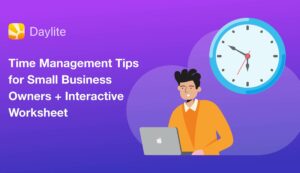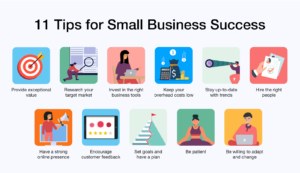Social distancing has affected everyone in more ways than we can count. As a business, however, you’ve suffered unique consequences in the form of rapidly switching to remote work, sending your employees home, and cancelling all your events.
These changing times call for businesses that are ready to greet novelties with open arms, since your clients appreciate brands happy to lead the way, innovate, and bring about relevant upgrades. Even if you’ve never had a chance to organize virtual events, these safe, albeit remote gatherings are a perfect alternative in the midst of a COVID-19 pandemic.
By combining digital transformation and personalization in various forms, you can make the most of your virtual events before the restrictions are lifted. Here are a few actionable tips to help you achieve this complex goal for your brand and keep your clients engaged and happy with the help of strategic virtual events.

Plan and schedule your event
Before you start choosing the right content, make sure that you have a concrete roadmap for your online event:
- Determine the most appropriate timing for your event, depending on its duration and the topics you want to cover. Make sure not to overlap your event with other industry-related events at that time.
- Outline your SMART goals for your event, so that you can measure the success levels of your event and improve the next one you organize.
- Outline the resources you will need: from your budget requirements, to the tech tools you plan to use. The budget itself will give you a solid idea of how much wiggle room you have to invest in different engagement strategies such as sending out printable materials and freebies, and booking high-profile keynote speakers.
Now that you have a better idea of the resources you have and the time and duration of your event, you can select the most appropriate format for the topics you wish to cover, tactics to make your guests more eager to attend, and tools to communicate effectively and seamlessly before, during, and after the event.
Introduce a variety of formats
Traditional, in-person events are typically used for networking, establishing stronger bonds with your clients, and boosting your reputation. The same can be achieved with online events, but you need to give your clients good reason to attend, since there will be no mingling, no stalls to visit and collect business cards, etc. Here are a few virtual event formats to consider for your clients:
- Webinars – a staple online event that requires a specific topic and can be as short as you please, or it can turn into a series. Depending on your expertise, choose a topic where you can share your latest research and case studies and provide invaluable knowledge to all who attend.
- Digital conferences – make sure to invite notable experts in your field of work with specific time slots for their presentations, Q&As, and workshops. You have an opportunity to bring relevant minds in the same virtual room and give your attendees a chance to pick which parts of the conference they want to attend.
- Collaborative workshops – if your clients appreciate practical tips and knowledge they can apply when they leave your event, then conducting workshops on a creative platform can be a solid option. Make sure to prepare the collaborative materials, and make the process intuitive and seamless, otherwise you risk spending half of your event giving directions as to the platform itself.
- Live streams – your social media will come extremely handy for your virtual “Ask Me Anything” events, live interviews, and practical tutorials if you want to educate your clients and followers on how they would benefit from your services and how they can put them to use.
Personalized freebies and event favors
The fact that you’re going to implement digital solutions for your brand doesn’t mean that you need to abandon all efforts that will mimic the atmosphere of a physical event. For example, during your event marketing campaigns, you can create gift baskets for the clients that have RSVPed to your event. Send them a package of branded freebies, marketing collateral, and other valuable materials that they would normally obtain during a regular event. Throw in a discount for a future workshop or webinar they can keep or share with a business partner – empowering word of mouth and giving them a reason to keep an eye on your digital event schedule.
Exclusive recordings of event lectures and workshops from your virtual event, business cards, a directory of related businesses attending your events (with their permission, of course) to promote virtual networking, and a personalized thank you note can help make your event more memorable. Personalized thank-you notes are a great way to keep your digital events more “humanized” and to remind your clients that you value their relationships and their trust.
Rely on VoIP to unify your event communications
Whichever event format you choose and no matter the number of attendees, you need a single, unified communications system to simplify interactions and improve engagement, whether your event is live-streamed or pre-recorded. Since online events have the same stages as your regular in-person events, from advertising, creating hype, all the way to collecting feedback afterwards, a unified system will help you focus on the theme and content of the event without worrying about potential issues.
VoIP (Voice over Internet Protocol) has become a staple communications solution for brands looking to organize engaging online events. As a single platform, VoIP will help you conduct each of those stages of event organization more efficiently, from sending out polls, surveys, and e-vites, all the way to live-streaming your event, publishing your pre-recorded webinars, enabling calls, etc. Depending on your needs, different VoIP solutions can help you devise a strategy to simplify all event-related interactions. This technology combines internet-based phone calls, texting, emailing, all the way to live video conferencing, recording and analytics.
- Use phone calls to encourage your audience to participate during your live events, be they podcasts, workshops, interviews, or simple “AMA” sessions.
- Allow live chat as well, as many people don’t have much to say, but would gladly send support with emoticons and words of praise.
- Use your built-in analytics with VoIP to improve the quality of the event – numbers can tell so much about the success of your event, based on the kind of questions and topics that invited the most engagement, calls, texts, or questions.
- Reach out to your clients post-event to ask for feedback and record their statements – and perhaps with their permission, publish their praise when you advertise your next event.
Promote your event effectively
Creating an omnichannel experience is far from limited to e-commerce businesses and retail in general. In fact, with more service-based companies doing their best to connect with clients on more than just their project platforms, creating a strategy that connects multiple channels can help you elevate your event marketing and communications.
For example, make sure that you market your event on your website and social media, but that you send emails to your subscribers as well. In addition to physical freebies, you can send text alerts when a workshop is starting, and send email summaries after each workshop, to thank them for their participation and encourage comments and questions.
Use your social media channels to publish stories and updates reminding your audience to attend your event and to share the highlights of each segment of your virtual events. Encouraging social media engagement based on your events will create another space for discussions and become a great source of ideas for future events – you always want to choose topics your clients are interested in.
Instead of thinking in a linear manner, consider your event transformation a systematic process that will slowly elevate your brand presence despite these unfortunate circumstances. With the help of the right tech and digital tools, creative content, and proper marketing, your virtual events will be as educational and engaging as your in-person events.
About the author: Emma is a digital marketer and blogger from Sydney. After getting a marketing degree she started working with Australian startups on business and marketing development. Emma writes for many relevant, industry related online publications and does a job of an Executive Editor at Bizzmark blog and a guest lecturer at Melbourne University. Interested in marketing, startups and latest business trends. Follow Emma on Twitter.


